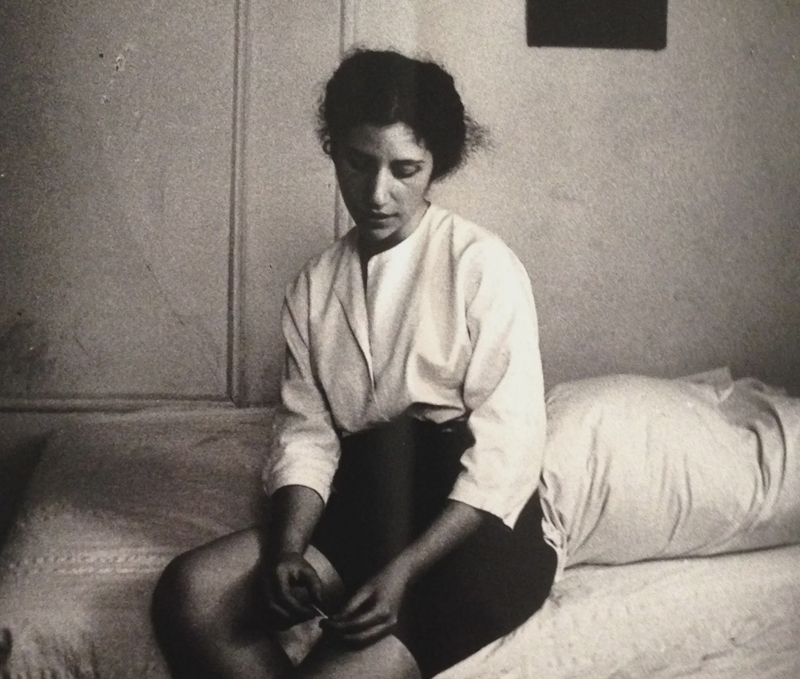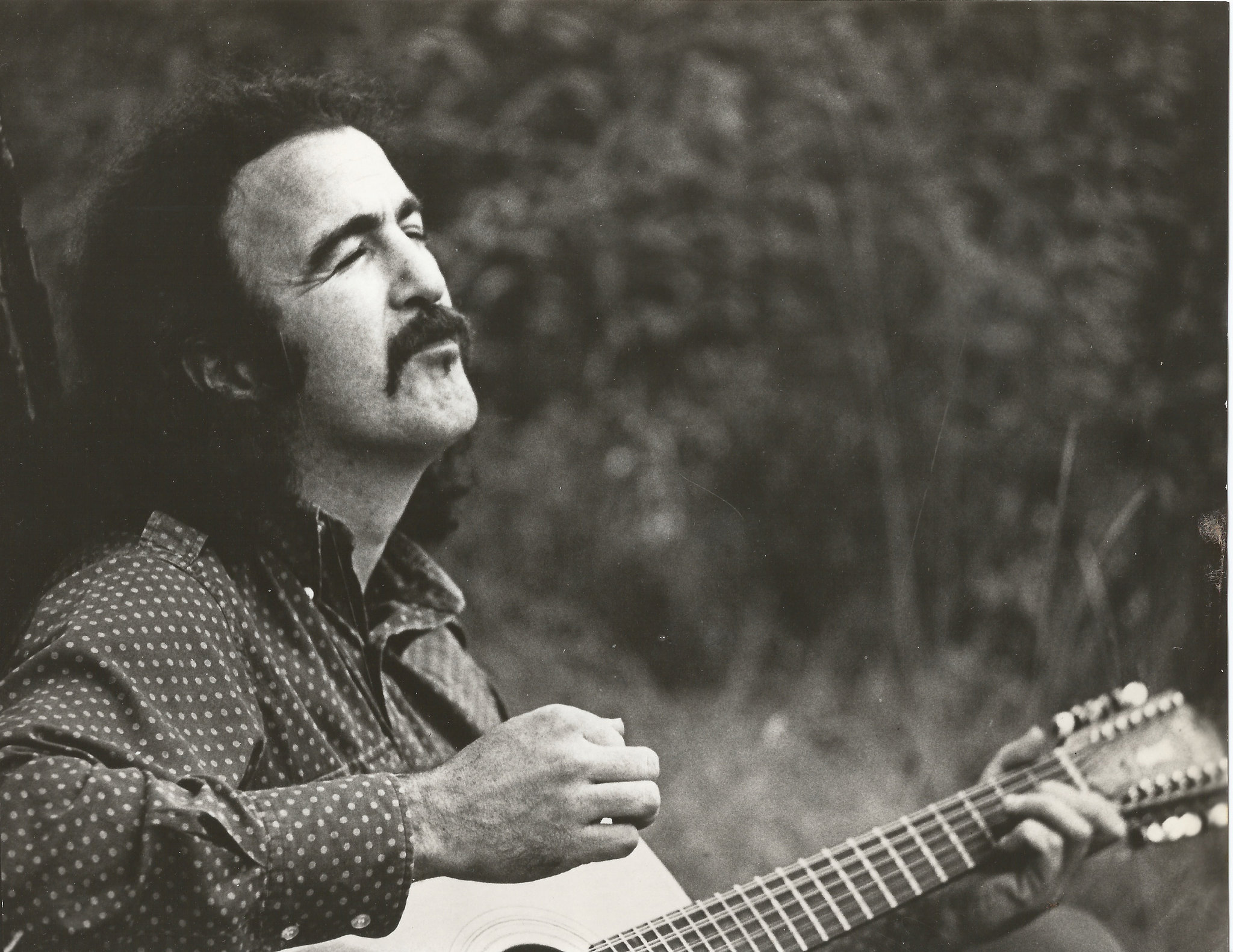
"There were women, there they were, I met them, but their families locked them in the mental hospital, put them in electroshock. In the 1950s, if you were a man, you could be a rebel, but if you were a woman, your family would lock you in. There were some cases, and I met them. Someday someone will write about them.”
Gregory Corso, writer beat in 1994
Of course, from the howls of Allen Ginsberg, the roads of Jack Kerouac and William S. Beyond Burroughs’ jonians and mariches, many writers participated in the U.S. Florida beat generation in the 1950s or in the beat literary movement. However, they did not achieve such spectacularity in the works of their male colleagues.
The Mallorcan translator Annalisa Marí Pegrum in her book Beat Attitude, published in 2018 with the anthological subtitle of the poets of the beat generation – Platform Goizalde Landabaso in which the journalist and writer gathered biographies of the artists gathered in this anthology and some of the available Pop 6 poems.
Denise Levertov, Elise Cowen, Joane Kyger, Hettie Jones or Ruth Weiss are the beat writers collected in this book. However, Diane di Prima stands out. Poet, prose writer, artist and professor died in October 2020 at the age of 86 at a hospital in the California city of San Francisco. Di Prima was a multifaceted creator who dominated fields such as alchemy, magic, hinduism, gnosticism, tantra, esoteric philosophies and Buddhism. He pioneered writing about very diverse issues related to women, such as menstruation, abortion and bisexuality.
The writers of the beat generation have left women in the shadow of this movement. Fortunately, his work is gradually recovering, including that of Diane di Prima
Until death came, Annalisa worked with the translator Marí Pegrum in her poetic anthology, and the result is Remove your stripped neck from my knife (Remove your cut neck from my knife). Brass furnace going out in this bilingual collection, composed in English and Spanish: Song, after an abortion (Brass Stove in Extinction: The song meets after an abortion). di Prima wrote when abortion was an illegal practice, in 1960, and was published without the consent of the author in 1975. The North American right used it in campaigns against voluntary abortion. Therefore, it aroused great mistrust on the author and, consequently, did not authorize its publication until the editor specialized in the literature of female writers, Torremotas, published a bilingual anthology.
In addition to this anthology, the editorial Las Suburbs has republished in Spanish Memoirs of a Beatnik (Memories of a Beatnik). Probably his most well-known work outside of the United States. Written in prose, it is a fake biography published in 1969 and commissioned. This is the pulp porn novel, which narrates the beginnings of the beat movement in the New York neighborhood of Manhattan, which responds to the desire for sexual flooding that the editors claimed in the Libertine environment of the time: “More sex.” Di Prima wrote in California to fill the belly of his bathroom members with food and smoke.
Flying backwards
In the 1950s, Di Prima lived in the Lower East Side district of New York City, and soon after he stepped down the streets of the city, he immersed himself in a bohemian life. He stepped away from material riches and wasted his time meeting musicians, actors, dancers and painters. For example, in 1955 she started exchanging letters with poet and writer Ezra Pound, and during the twelve years she spent in the psychiatric hospital she visited frequently. In addition, he listened and internalized a lot of jazz music with the intention of incorporating the language of jazz into his writing. “Jazz for us was the most important art of the time,” says in his book Memoirs of a Beatnik, to extol the virtues of Bird (Charlie Parker): “Our highest representative spoke with saxo and trumpet.”
At that time he first read the Ulu of the poet Allen Ginsberg. The identification was immediate, since Di Prima followed a similar style: poetry that used street language, modern, hipster and creation with cool attitude.
In the works written with this attitude, their own emotions and judgments were discarded, so the domestic tasks or the growth of the children had no place. In this way, men more easily reached coolity. In this sense, it is very famous that Jack Kerouac cast di Prima in a toxic juerga to replace his nanny when he left the party: “Say Prima, you’ll never be a writer if you don’t manage to forget your nanny.”
Di Prima style brands: street vervette, lack of punctuation, interjections and abbreviations and word union to create new words
Thus, the works of Di Prima of this time are created in a beat environment, being This Kind of Bird Flies Backward the most famous: It was published in 1958, but it collects poems written from 1953. In addition to the street vervette, in their poetic style other elements were highlighted, such as the lack of punctuation, abbreviations and the union of words to create interjections and new words.
In 1960 she fell in love with writer LeRoi Jones (Amiri Baraka), linked to the beat movement and rights of African Americans, and became pregnant twice. He lost the first child under the pressure of Jones, but the second bore Dominique. Di Prima wrote that year Brass furnace going out: Song, a long poem after an abortion. According to the translator and expert Annalisa Marí Pegrum, “it is a hobby for the life of the recently aborted child, but also for the lost opportunities of his life”. There is guilt, frustration, sadness, fear, anger and acceptance.
“I want to put you in a jar to send it to your father
with a long, tender note. I want you to know
that I do not forgive you, neither you nor him because he has not been born.”
In addition to a writer, he collaborated in The Floating Bear magazine, along with LeRoi Jones, editor di Prima, which collected works of experimental and young poets, which lasted from 1961 to 1971. The publication was not sold to prevent the prosecution of the FBI: however, di Prima and Jones were imprisoned on charges of “lust” in 1961, William S, published in the publication. Some writings from Burroughs.
The revolutionary sun
In 1968, he settled in the Californian city of San Francisco with the intention of immersing himself in the local counterculture. In the words of the writer, “poets, diggers, black panthers, Zen students, pioneers and revolutionaries, in a wild and hopeful experiment that in 1968 was fashionable in this city.” Di Prima participated in the Diggers movement, a radical community action group consisting of activists and street theater actors, operating in the Hake–Ashbury neighborhood.
In 2014 he published his latest book of poetry di Primak: 'The Poetry Deal'
In the shadow of this demanding and transformative environment, he published in 1971 the poems Revolutionary Letters, through the editorial City Lights City Poets of Lawrence Farlinghetti, improvised texts to read in the street, in the form of street theater.
A year later he married the poet Grant Fischer, with whom a year earlier he had his fifth son. It was then that the epic book Loba (Otsema) ended. For decades he directed, completed and extended this work, as a continuous writing. It addresses the representation of femininity, both in literature and in religion, and takes the title of the Native Americans, with the objective of representing the woman as a goddess wolf.
“And are you going to hunt Wolf?The
innocent, what are they going
to use, spear, harpoon or arrow, pistol
or boomerang?
Do you think you can catch it in
the networks of love?
Is it he who rides the
rising as a raft for which you are
going to fish in
the stormy stream of the sky? Do you expect
it to warm up with its
heating next winter?”
Thus, during the boiling of this counter-culture environment, di Primak largely abandoned the beat style and overcame that label, which made a journey too long and prosperous to limit itself to the beat seal, remembering that he dominated several disciplines, from alchemy to hinducide. In 2014 he published his latest collection of poetry, The Poetry Deal, in which he received the poem Keep the Beat, to claim that beat is not a male writers club or a literary trend, but a mood:
“It’s not a “generation”
Uler
Eli – it’s a state of mind.”
Ereserkiek, kanta-modalitate zehatz, eder eta arriskutsu horiek, komunitate bati zuzentzea izan ohi dute helburu. “Ene aberri eta sasoiko lagunok”, hasten da Sarrionandiaren poema ezaguna. Ereserki bat da, jakina: horra nori zuzentzen zaion tonu solemnean, handitxo... [+]
Adolfo Bioy Casares (1914-1999) idazle argentinarrak 1940an idatzitako La invención de Morel (Morelen asmakizuna) eleberria mugarritzat jotzen da gaztelaniaz idatzitako literatura fantastikoaren esparruan. Nobela motza bezain sakona da, aparta bere bakantasunean, batez... [+]
Ekain honetan hamar urte bete ditu Pasazaite argitaletxeak. Nazioarteko literatura euskarara ekartzen espezializatu den proiektuak urteurren hori baliatu du ateak itxiko dituela iragartzeko.
Aste honetan aurkeztu da Joseph Brodskyk idatzitako Ur marka. Veneziari buruzko saiakera. Rikardo Arregi Diaz de Herediak itzuli eta Katakrak argitaletxeak publikatu du poeta errusiar atzerriratuari euskarara itzuli zaion lehen liburua.
Gauza garrantzitsua gertatu da astelehen honetan literatura euskaraz irakurtzea atsegin dutenentzat: W. G. Sebalden Austerlitz argitaratu du Igela argitaletxeak. Idoia Santamariak egindako itzulpenari esker, idazle alemaniarraren obrarik ezagunena nobedadeen artean aurkituko du... [+]
Asteazken honetan aurkeztuko dituzte Erein eta Igela argitaletxeek Literatura Unibertsala bildumako hiru lan berriak, tartean Maryse Condéren Bihotza negar eta irri (ene haurtzaroko istorio egiazkoak). Joxe Mari Berasategik euskaratua, idazle guadalupearraren obra... [+]

























